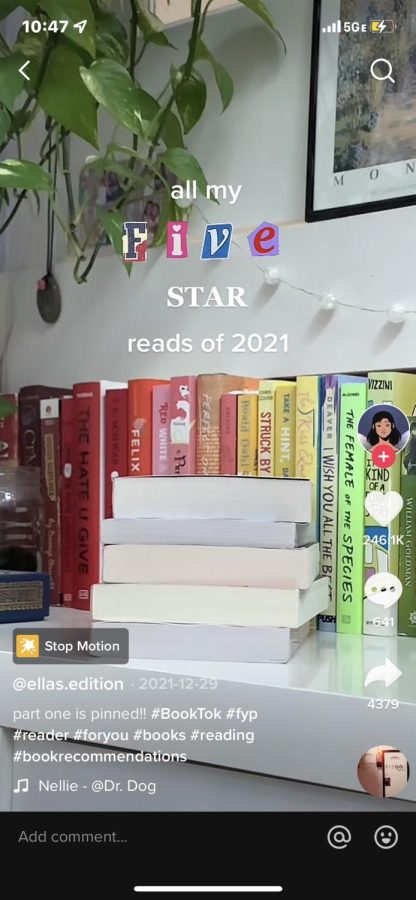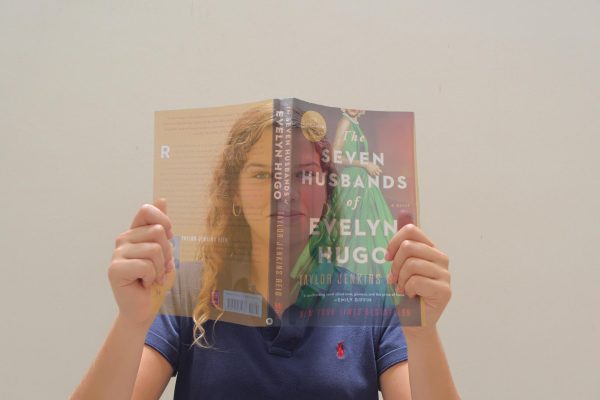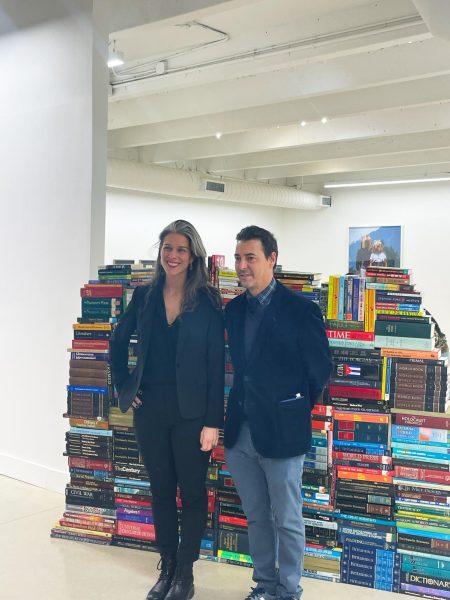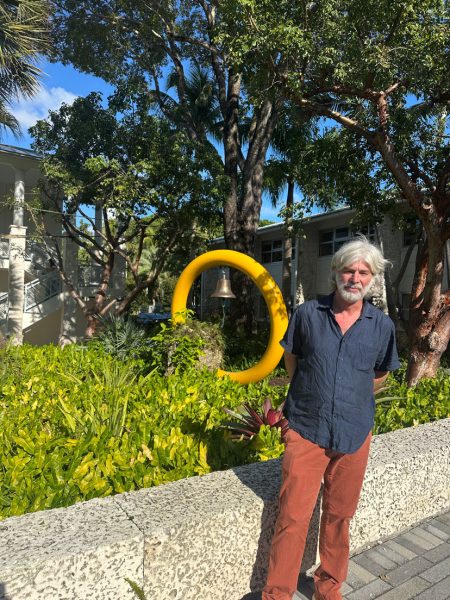How #BookTok changed the way teens look at reading
An example of a #BookTok post from user @ellas.edition.
In the last 30 years, the rise of digital media has caused some major transformations in the literary world. The book you used to have to purchase at the nearest bookstore can now be downloaded right onto your Kindle and can even be listened to in the car through sites like Audible. All these new ways to access literature have presented potential threats to the sales of traditional hardcopy books. But in the last two years, BookTok, a movement driven by bored teenagers on social media, has created a platform for people to market their favorite books to young audiences. The sales of some books have skyrocketed, giving hope to the classic hardcover.
In the early months of the COVID-19 pandemic, TikTok gained millions of users as phone usage in the US increased by 40%, according to Statistica. During this time, Rebecca Ferrer ’24 said that she was on social media for hours per day, but it was unproductive and draining.
It became commonplace for TikTok influencers to recommend activities besides TikTok, such as cooking and daily walks, and some users started to gain popularity by offering reading recommendations. Pitching young adult books to their audience of teens, they claimed that reading offered the same satisfaction as watching TV or scrolling on social media. Soon, a book recommending corner of TikTok emerged, and it has been growing in popularity ever since. As of now, the #BookTok hashtag has 35 billion views, and the top liked video under the hashtag has 1.5 million likes and over 10 million views.
BookTok posts can take on different forms. Some Booktokers act out the conflict that occurs in the book with dramatic music playing in the background, leaving cliffhangers to encourage the viewer to buy the book for themselves. Others video themselves reacting to an intense moment in the book, sometimes while crying on camera as they read on. Booktokers have also highlighted the small but pleasurable feeling of having an organized bookshelf in your bedroom, inspiring users to go out and buy more hard copies.
As BookTok has gained in popularity, bookstores such as Barnes and Noble and Books and Books have taken note, establishing special shelves or sections dedicated to books featured on BookTok. A store manager at Books and Books in Coral Gables said that as COVID progressed and BookTok became more popular, he noticed a younger demographic coming into his store more frequently, reaching for similar titles he assumes they saw on TikTok.
The rise of BookTok has also had an influence on authors. For example, Song of Achilles by Madeline Miller became a New York Times bestseller 11 years after it was published due to its newfound fame on TikTok, and the hashtag #SongofAchilles has over 85 million views.
Potentially, authors can utilize this platform to promote their books, and some already have. Author Jennifer Millikin racked up 4.8 million views on TikTok for telling a riveting story that seemed to be about her life—only to reveal at the end that it was the plot of her new novel ‘Our Finest Hour.’
Behind the scramble to capitalize on this new platform are the consumers themselves, who are predominantly young girls. Several have said that what intrigues them about BookTok is the way that it allows younger creators to recommend books to them, as opposed to authority figures like parents or teachers. “I like that Booktok offers reviews from teens who just happen to like reading instead of more serious editors,” said Sophia Romanov ’24, an active reader who uses Tiktok to get recommendations for the books that she reads. “It’s nice having an unfiltered review.”
Romanov also talked about how teen book reviewers describe and categorize the books they talk about using familiar tropes, which helps their audience make informed choices. Tropes tend to be plot or character categories that are popular among a certain genre of books and can become synonymous with the genre itself. ‘Chosen one,’ ‘found family,’ and ‘good vs. Evil’ are tropes Romanov gravitates towards, all pertaining to the fantasy genre. “It’s been helpful in finding more books to read, because I know I will like them,” Romanov said.
Booktokers at RE are overwhelmingly positive about its impact, describing upsides like decreased screen time. “I don’t remember the last time I’ve watched a TV show. I’ve just been so interested in reading,” said Ella Gonzalez ’24. For Maggie Seabrook ’24, reading has become an outlet that allows her to channel the desire for entertainment without the repercussions that come with watching shows or scrolling through Instagram.
Dr. Corinne Rhyner, an English Teacher at the Upper School, noted that reading outside the classroom can be beneficial inside the classroom. “One of the best ways to improve your writing is to increase your reading,” she said, as it increases one’s vocabulary and allows one to see new writing styles and techniques.
In a world where social media algorithms consume the average person’s attention, the BookTok community see the power of their influence as an opportunity to encourage better habits among teens. The question that remains: what else can influencers encourage teens to do, and to what extent will they listen?
Emma Dvorkin '24 is a senior at Ransom Everglades School and the Editor-In-Chief of the RE Catalyst. She is a fellow of the RE Bowden Fellowship and is...







